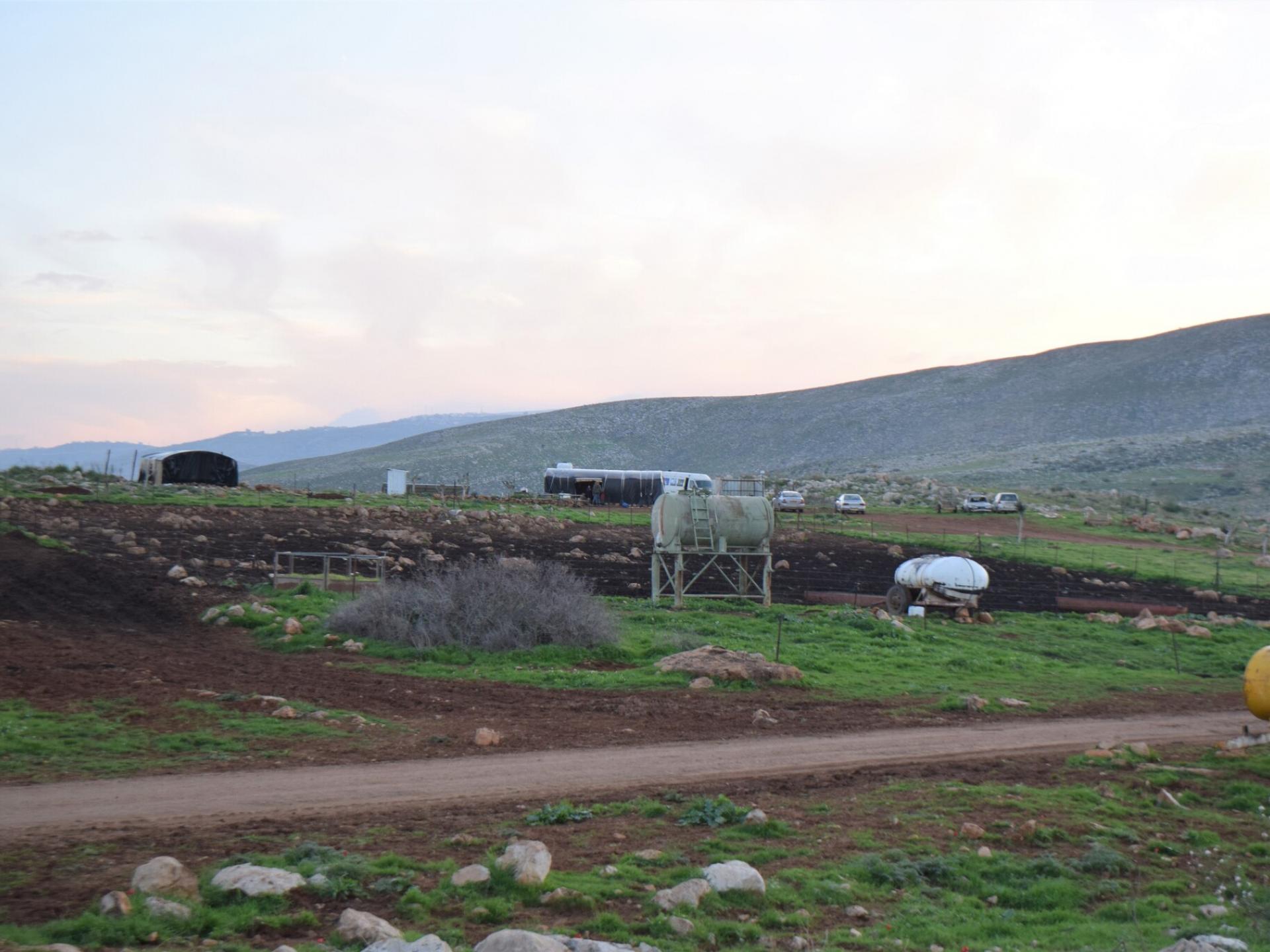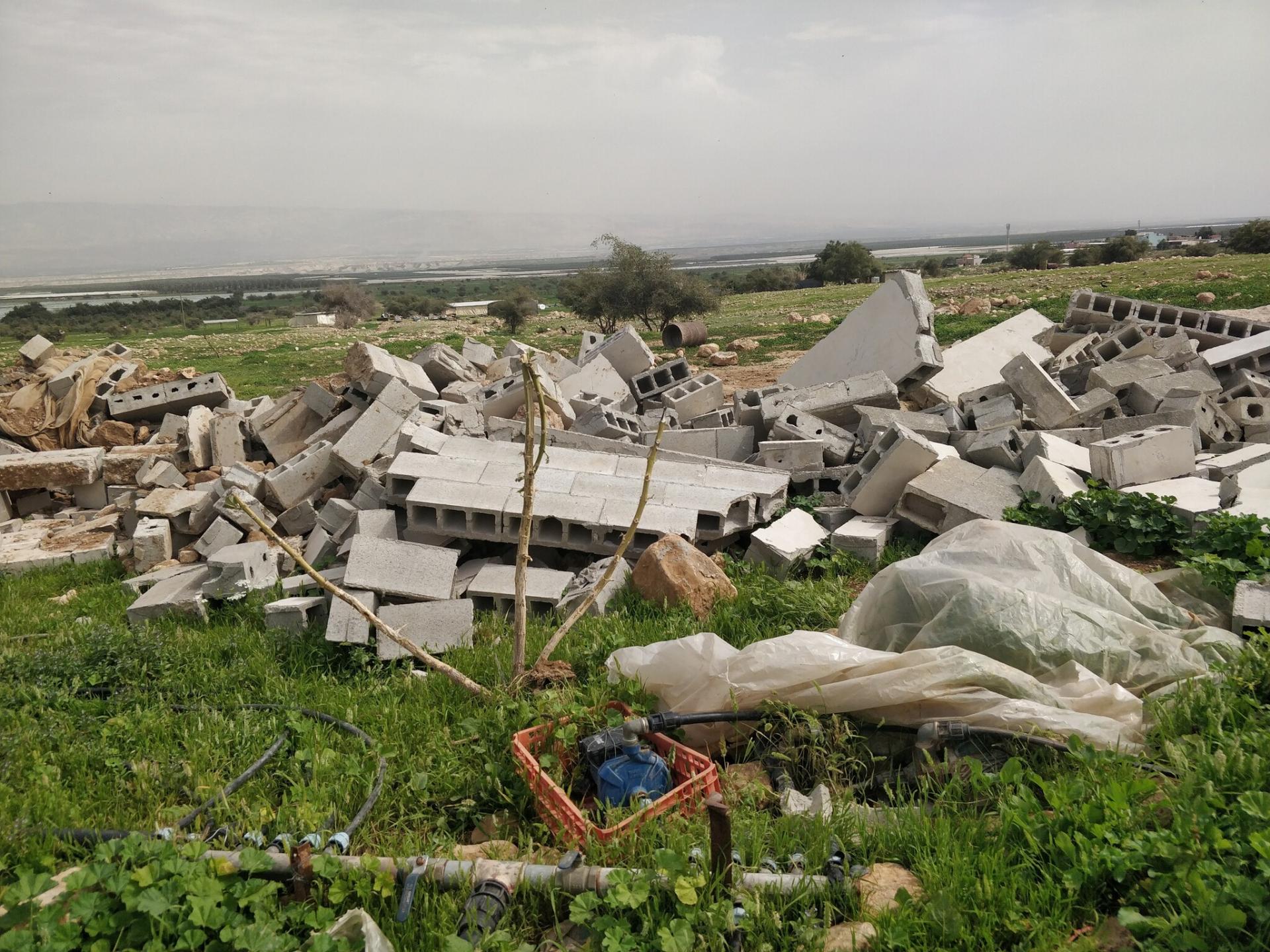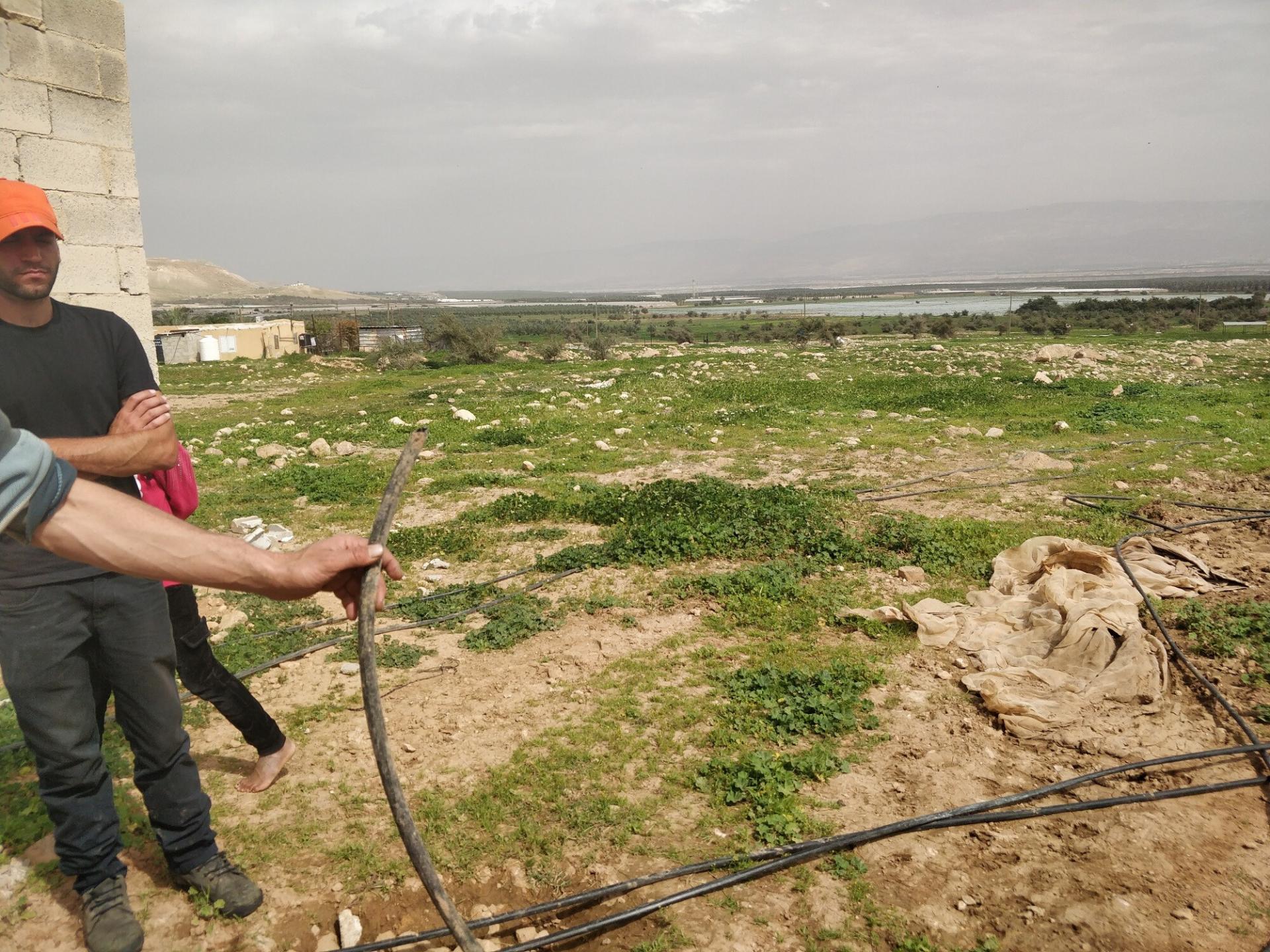Fassail, Jodan valley
We first took Maryam (already half-blind) to Jericho to receive injections in her eyes. Since we came early, we drove to meet Guy Hircsfeld who was accompanying Palestinian shepherds around Al Auja, defending them from the harassing colonist Omer Atidiya and his pals from the colonist outpost Mevo’ot Yericho. The green hills were spotted with the flocks of Bedouins living there for decades, ever since they were expelled from the Negev, and only the massive Jewish construction, Jewish olive groves, and restaurants wound this pastoral landscape.
We entered the city of Jericho from the east, a side unknown to us, so we needed driving instructions and received them from the local inhabitants – complete with a glad, inviting smile.
Unfortunately, because of her illness, Maryam will need more injections although her condition has greatly improved. It is heart-rending to see her enter the clinic confidently, and exit hurting, groping her way in total blindness, as she was when I first met her when the Israeli army demolished her home. After an hour and some aspirin, she felt better.
In Fasail the Civil Administration (the Israeli army’s arm in charge of hurting civil Palestinian society) demolished a structure 8 days earlier, and took the opportunity cut (with or without intention, during the demolition) the thin pipes that provide some water (once every 4 days!) to 7 families, including the families of Maryam, Tahreer, and Hajar – our acquaintances. 7 families left with not a drop of water. (Note how thin the pipes are in the photos that provide water to families of over10 persons each, unlike the thousands of cub. m. of water provided to the nearby colonies).
(the Israeli army’s arm in charge of hurting civil Palestinian society) demolished a structure 8 days earlier, and took the opportunity cut (with or without intention, during the demolition) the thin pipes that provide some water (once every 4 days!) to 7 families, including the families of Maryam, Tahreer, and Hajar – our acquaintances. 7 families left with not a drop of water. (Note how thin the pipes are in the photos that provide water to families of over10 persons each, unlike the thousands of cub. m. of water provided to the nearby colonies).
We drove on to the area east of Fasail – a firing zone that used to be the Palestinians’ grazing ground. A few months the shepherds complained that they have no more room to graze, for the colonist from the outpost on the hills (“Angels of Peace…”) arrives with their own cattle and sheep flocks and chases them away with armed threats or by summoning the army that chases away the Palestinians with its claim of a ‘firing zone’. In the past, the Palestinians would graze there although the entire vast area is a firing zone, as the army accepted this, or simply turned a blind eye. Only when it wished to hold maneuvers there (rarely) did it notify them and they then abstained from coming. Now the colonist says – “The whole area, from Ma’ale Efrayim to Al Auja – is mine!” (Which is of course absolute nonsense, but what can the shepherds do?). Today we saw many Palestinian flocks on the slopes, and not the colonist, but there are many signs of his presence, and we have seen him, his ATV, and his horses and cattle in the area many times in the past.
We did see that the Tomer colony has taken over the additional ground, fenced it in with barbed wire, and behind the fence is preparing a huge area for expansion. Later we passed by the Fatza’el colony and saw the same magnitude of massive construction. We hardly saw any colony on our way that didn’t show additional construction and land grab. Near Eli, for instance, we saw hill after hill – on every hilltop - a further extension of the colony. Shocking!
Finally, at the end of our potholed drive, we witnessed the water pump of Fatza’el 8, to which high-voltage pylons bring electric power. This means that 8 boring spots at least (there are probably more that we have not discovered yet) steal the water of the Fasail springs, an occupied Palestinian natural resource that international law forbids Israel from using, while the Palestinians are left with next to nothing (and even this tiny bit was robbed from them 8 days ago when Israel cut the thin pipe that supplied water to this community once every 4 days).
At the Fatza’el springs, we witnessed another 3 Israeli water pumps belonging to Mekorot (the Israeli water company), and many Palestinian families resting nearby. The local shepherds told us about the regular harassment by the colonist from above, threats, and attempt to expel them. Unfortunately, there are not enough accompaniers to protect the dozens of shepherds from Fasail, because all over the Palestinian Jordan Valley all Palestinian shepherds suffer from harsh violence by colonists of new, illegal outposts, while the veteran colonists join them from time to time, and even if not – turn a blind eye to their crimes, for these serve their interests well (chasing Palestinians from the entire Valley).
On our way home we wanted to visit Ras A-Teen, but a suspicious object on the road blocked our way, so instead, we visited the shepherds of En Rashash next to whom the same colonist, Elhanan, has erected his outpost “Angels of Peace” in a deserted army base. The location is on the higher plateau, on the eastern border of the Palestinian Jordan Valley, overlooking it. Downhill that criminal has erected a new ranch that controls all of Fasail’s grazing grounds, and from there he comes to perpetrate his crimes. Until a year-and-a-half ago we constantly accompanied shepherds from En Rashash (about 15 families), holding unending confrontations with him and with the army doing his bidding, as well as with the police. Finally, the Palestinians gave up and deserted the grazing grounds that had served them for many generations. At present they graze next to their encampment and due to overgrazing, nothing is left for the flock to eat by summer, and the owners need to purchase feed. Following the war in Ukraine, a steep rise in feed prices is anticipated, and one can hardly expect these shepherds to afford this.



